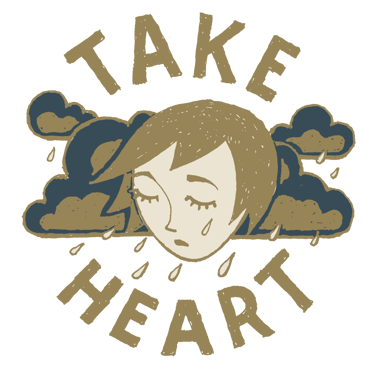The Interview
Short Story
On Sunday evening, three young men sat in the cooling summer air at a sidewalk table in front of Pedro’s Pizza. A pitcher of cheap ale and a large pepperoni pie, still steaming from the oven, crowded the space between them. The girl who served the outside tables on Sunday nights knew them by sight. She seemed to understand as clearly as they did that this weekly ritual had become a sacred tradition, not to be broken—though it had never been stated, even to each other. They didn’t know her name, or whether or not she knew theirs, but tonight she told them she would be leaving in the Fall to study English.
“I won’t be seeing you anymore,” she said. “But I hope you keeping coming here.”
“Congratulations!” said Jack. “On to better things?”
Sage gave her a thumbs-up. Dom nodded, eyeing a vintage Mustang parked across the street.
“I don’t know,” she smiled. “It’s not like that. This is home and I like it here. But I admit I am looking forward to college.”
“What will you do afterward?”
“Write maybe. Not sure yet.”
“Books?” Jack leaned forward, interested.
She shrugged. “I think so.”
“We have been coming here forever and we don’t even know your name,” said Jack. “And now you are going away to become a famous writer.”
“We’ll miss you,” Sage joined in. “Tell us something about yourself so we’ll always remember you.”
“Hey, this isn’t an interview,” she said, laughing. “I have work to do.” Pushing her glasses up on her nose with a thumb and shaking her head, she went back inside.
The ridges beyond the small mountain town were turning pink and yellow as the last of the evening sun lit the high peaks. On the valley floor, everything was still bright in the warm shade; the temperature was perfect. A van rumbled by on the sleepy street. Jack poured beers all around. Sage and Dom started talking about old cars.
An unfamiliar man sat down next to Jack in the empty chair at their table. His clothes were too heavy for summer in southern California, and he smelled like the alley behind Jack’s apartment building.
The conversation about cars abruptly ended. Sage and Dom looked across the table at Jack and the strange man. The stranger smiled, his eyes almost disappearing in his tanned, wrinkle-webbed face, showing dark yellow teeth. He slid a notebook out of the folds of his coat and pointed a long yellow pencil at Jack.
“Ok,” he said. “You first. Tell me a little about yourself. Name, where you’re from, whatcha do. Then we’ll get to the real questions.” He had a rough, pleasant voice, assured and commanding, but generous.
“What?” Jack said. Then, clearing his throat and speaking louder, “Who are you?”
The stranger’s eyes twinkled. “I’m interviewin’ you. You don’t get to ask me questions until I’m done askin’ you.”
Jack shifted in his seat. “You can’t sit here. This is our table.”
“You’ll have a chance to give me feedback when I’m done,” the stranger grinned, wagging his pencil. “Name!”
No one else was on the sidewalk. The rest of the checkered-cloth tables in front of Pedro’s were unoccupied. Reflections of the four men wavered in the plate glass window overlooking their table; the dim interior of the restaurant was invisible behind the glinting surface.
The man in the thick coat seemed neither old nor young. There was dirt under his fingernails and his beard had yellow streaks in it. He looked at Jack, pencil poised above notebook, his eyes a deep, rusty brown.
“I’m Jack. Originally from Idaho.”
“Jack,” the stranger muttered, scribbling. “No one is ever from where they happen to be anymore.” He looked up. “What do you do, Jack?”
“I sell insurance.”
“Already?” The stranger cackled delightedly.
“You need to leave,” Dom said quietly, both hands flat on the table.
“Hang on, you’ll get your turn!” The stranger waved his pencil in the air. “I’ll be done with Jack in a minute.”
Dom said nothing. Sage looked from one face to another.
“What brought you to California? From I-dee-ho.” The stranger eyed Jack.
“School.”
Nose in his notebook, the man said, “What’s the worst thing anyone ever said to you?”
His left hand shot out and pulled the first slice from the untouched pizza. Hot cheese stretched out thin and sagged, momentarily tethering the fresh gap in the whole to its missing piece. He brought it to his nose, and with a brief glance around the table, pushed the end of it into his mouth.
In the doorway of the restaurant, the girl who served their table gazed at them, a small basket with jars of parmesan and pepper flakes and napkins in one hand, a pitcher of water in the other. Dom and Sage stared at the stranger in disbelief.
Jack said, “When I was 9 my grandfather came to visit. It was the first time I had met him—at least it was the first I could remember. Dad told me to help carry things in from the car, then he went inside with an armload of stuff. I picked up two suitcases and followed my grandfather onto the porch. Just before we reached the front door, he turned back and looked at me. He was grinning. I still have freckles, as you can see; but I was extra freckly as a kid. He said: ‘What happened to your face, runt, a cow fart on it?’
The smelly stranger’s mouth worked, nodding as if he had heard the story before. There was cheese at the corner of his bottom lip.
No one said anything for several minutes. The sound of the man’s chewing was clearly audible.
After a time Jack picked up the glass in front of him, still untouched, its contents gleaming deep gold in the evening light. He held it out. “You want a beer with that slice?”



